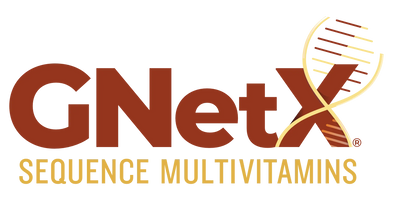Race is a Social Construct, But Genetics Goes to the Core of the Problem

23andMe® Can’t Tell Your Race
Some people get really annoyed when I talk about African American health, health disparities, or even having a multivitamin tailored for African Americans. They say race is totally a “social construct.” And to their point, if you get a 23andMe or some other genetic testing, they will tell you a lot of information (who you are related to, some disease risks, etc.), but what they won't tell you is your “race.” That is because race is a social construct and has nothing to do with genetics. Genetics is real, and your genes tell an extensive story about where you are and where your ancestors have been.
Darwin’s Theory of Evolution
But when you think about our genetics, our specific genes, everything becomes significantly clearer. It is well accepted that Darwin's theory of evolution was a groundbreaking notion because it explained why there were differences within a specific species based on the geography where they existed. Salmon, for example, that come from ice-cold waters have more fat to keep them from freezing. Some birds fly south for the winter, while others stick around throughout the winter because they have been genetically modified to survive.
Genetically Modified to Exist Best in a Low Salt Region of Africa
A Harvard-trained professor, Constance Hilliard, PhD, recently wrote a book called “Ancestral Genomics: African American Health in the Age of Precision Medicine,” and in it, she explains why there are differences in some African American health conditions. She explains that African Americans are descendants of African farmers from areas exceptionally deficient in salt. Essentially, these farmers could live on very little salt, much less than modern scientists believed possible. Over centuries, through necessity, these farmers' bodies adjusted to a very low salt region. Add to that a disease-laden, dehydrating trans-Atlantic slave trip to America, and you have a population that survived due to salt retention.

A Solution Became a Problem
As descendants of these farmers, African Americans have been exposed to more salt than our ancestors ever dreamed about. Since our bodies were “adjusted” to a low-salt area, once we were exposed to extreme amounts of salt in North America, health problems ensued, including high blood pressure, kidney problems, heart disease, and more. What we now call “salt sensitivity” was a life-saving genetic adjustment to an area devoid of salt.
Vitamin D deficiency is also widespread among African Americans, and that is also easily explained by our African farmer heritage. Just imagine how much time our ancestors spent in the sun tending to their crops. Now compare that to how much time we spend in the sun. Result: widespread vitamin D deficiency and all of the related problems high blood pressure, diabetes, prostate, breast, and colon cancer).

African Americans who are descendants of slaves who were also descendants of these African farmers now have what is referred to as a “health problem." In contrast, centuries ago, this so-called problem was a solution critical for our survival.
Planes, Trains, and Automobiles
Before the time of world travel, humans lived very close to where they were born. Even vast migrations were from one location hundreds of miles from another, not thousands of miles. Given the minimal migration of most humans before the advent of the boat, humans had to “genetically” maximize their ability to live wherever they lived. These adjustments included the ability to sustain themselves on the ecosystem around them. They survived on fruit, vegetables, nuts, beans, and available animals as prey. They did not have cattle, so there was no need to digest milk, thus we have widespread lactose intolerance. But how much fruit, vegetables, beans, and nuts do you consume regularly?
That's why we need more vitamin C, zinc, magnesium, and other vitamins.
Your Genes are a “Gift”

While many of the health issues we see in the African American population are seen as defective or disadvantageous, the reality is in the past; they were genetic modifications that allowed us to live and thrive. In short, we literally wouldn't be here without these modifications. Our ancestors would have died long ago.
Our Needs Are Different
We, as African Americans, need to acknowledge these inherited attributes and then protect ourselves from threats that were unimaginable centuries ago.
When I developed the formula for GNetX Sequence Multivitamins, I was considering these documented and research-verified differences. Like most things, there is no one-size-fits-all supplement, but this supplement is much closer to what we need.
Listen to this podcast discussing our African heritage and our unique health needs.





Comments